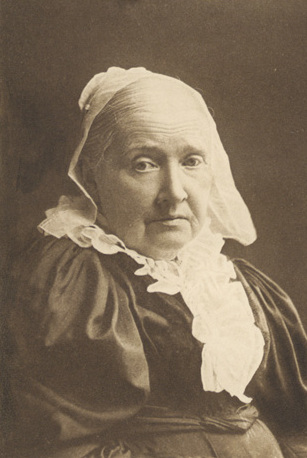
Julia Ward Howe was an American author and poet, known for writing the "Battle Hymn of the Republic" and the original 1870 pacifist Mother's Day Proclamation. She was also an advocate for abolitionism and a social activist, particularly for women's suffrage.

Paulina Wright Davis was an American abolitionist, suffragist, and educator. She was one of the founders of the New England Woman Suffrage Association.

Mabel Esmonde Cahill was an Irish female tennis player, active in the late 19th century, and was the first foreign woman to win a major tennis tournament when she won the 1891 US National Championships.

Arabella Mansfield, born Belle Aurelia Babb, became the first female lawyer in the United States in 1869, admitted to the Iowa bar; she made her career as a college educator and administrator. Despite an Iowa state law restricting the bar exam to males, Mansfield had taken it and earned high scores. Shortly after her court challenge, Iowa amended its licensing statute and became the first state to accept women and minorities into its bar.

Judith Ellen Horton Foster was an American lecturer, temperance worker, and lawyer. She is thought to be the first woman in Iowa who was actually engaged in practice and the fourth woman admitted to practice before the Supreme Court of Iowa. In her time she was known as "The Iowa Lawyer".
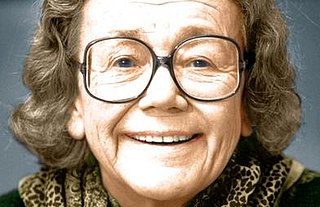
Elizabeth Morley Cowles Gale Ballantine, known as Morley Cowles Ballantine, was an American newspaper publisher, editor, philanthropist, and women's rights activist. Scion of an Iowan newspaper publishing family, she and her second husband, Arthur A. Ballantine, purchased two Durango, Colorado newspapers in 1952, which they merged into The Durango Herald by 1960. The couple also started the Ballantine Family Fund, which supported arts and education in Southwest Colorado. After her husband's death in 1975, Ballantine took over the chairmanship of the family-owned publishing company, continuing to produce a weekly column and editorials. She received many journalism awards and several honorary degrees. She was inducted into the Colorado Business Hall of Fame in 2002 and was posthumously inducted into the Colorado Women's Hall of Fame in 2014.

Mary Jane (Whitely) Coggeshall was an American suffragist known as the "mother of woman suffrage in Iowa". She was inducted into the Iowa Women's Hall of Fame in 1990.

Sarah Sophia Chase Platt-Decker was an American suffragist. Mostly active in Denver, Colorado, she also served as the national president of the Federation of Associated Women's Clubs from 1904 to 1908.
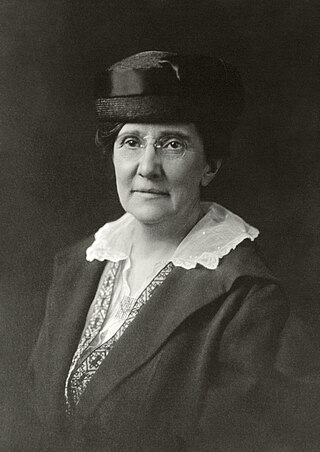
Caroline Spencer was an American physician and suffragist who campaigned extensively for women's rights, both in her home state of Colorado and on the national level. She was one of many Silent Sentinels who demonstrated in front of the White House, and also participated in Watchfires, during the final months before the Nineteenth amendment was passed. She was inducted into the Colorado Women's Hall of Fame in 2006.
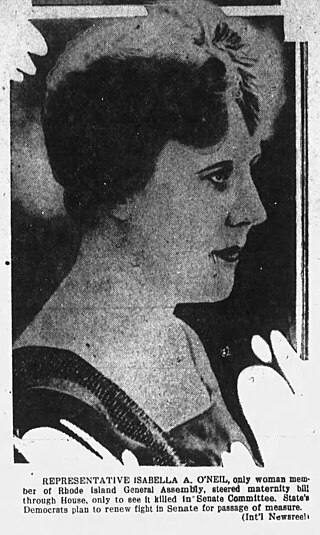
Isabelle Ahearn O'Neill was a stage and screen actor of the silent film era, a suffragist, and the first woman elected to the Rhode Island Legislature. She also served in the state Senate and, under President Franklin Roosevelt, in the Federal Bureau of Narcotics. She was inducted into the Rhode Island Heritage Hall of Fame in 2014.
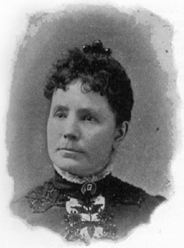
Emily Burton Ketcham was an American suffragist.

Edith Vosburgh Alvord (1875–1962) was an American suffragist and active Detroit clubwoman.
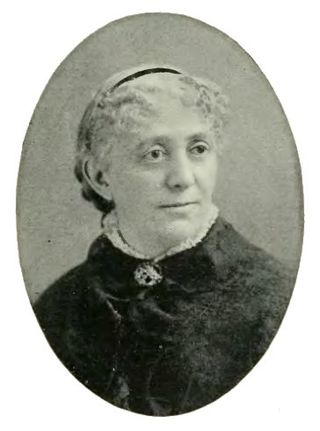
Mary Newbury Adams was an American women's suffragist and education advocate. She was a major social and political activist, and she helped found the Iowa Federation of Women's Clubs and the Northern Iowa Suffrage Association. Adams was inducted into the Iowa Women's Hall of Fame in 1981.

Annie Nowlin Savery was an American suffragist and philanthropist based in Des Moines, Iowa. She is known as a pioneer feminist and activist for woman suffrage. She began taking part in the woman suffrage movement in the 1860s, and became a leader in the county and state, speaking widely and helping establish organizations to support it.
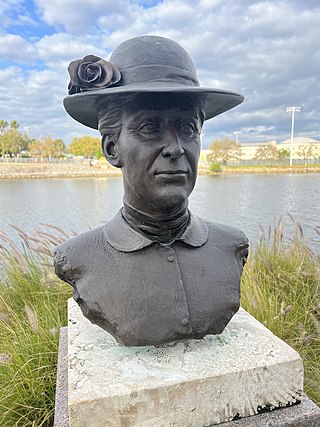
Eleanor "Ella" Collier McWilliams Chamberlain was an American women's rights activist and journalist who has been credited with starting the women's suffrage movement in Florida. Chamberlain was born in Mahaska County, Iowa, in September 1848, and moved to Florida in the early 1880s after she married. In the early 1890s, she organized the Florida Women's Suffrage Association and began writing articles for the "Tampa Weekly Tribune." "The Tampa Tribune" claims that Chamberlain "may have been Florida's first 'suffragette.'"

Sallie Topkis Ginns was a suffragist who served as treasurer of the National Woman's Party for eight years. She is an inductee in the Hall of Fame of Delaware Women.
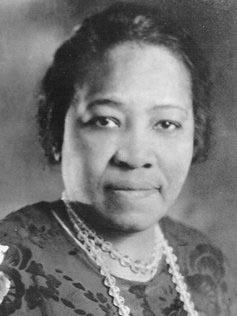
Sue M. Wilson Brown was an African-American activist for women's suffrage. She was inducted into the Iowa Women's Hall of Fame in 1995.
Jean Adeline Morgan Wanatee was a Meskwaki activist for Native American and women's rights. Wanatee was an artist and tribal leader dedicated to preserving and sharing the traditional culture and language of the Meskwaki. She was the first woman elected to the Meskwaki Tribal Council and the first Native American to be inducted into the Iowa Women's Hall of Fame.

Catherine Mary Flanagan was an American suffragist affiliated with the Connecticut Woman Suffrage Association and later the National Woman's Party. She was among the Silent Sentinels arrested for protesting outside the White House in 1917.
Ruth Bluford Anderson was a social worker and professor at the University of Northern Iowa (UNI).


















